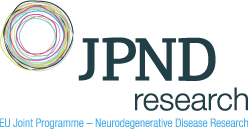JPND Launches EU Request for Neurodegenerative Disease Research Projects

 The EU Joint Programme —Neurodegenerative Disease Research (JPND) is calling for proposals for pathway analysis of multinational research projects, focusing on neurodegenerative diseases such as spinal muscular atrophy (SMA).
The EU Joint Programme —Neurodegenerative Disease Research (JPND) is calling for proposals for pathway analysis of multinational research projects, focusing on neurodegenerative diseases such as spinal muscular atrophy (SMA).
According to a JPND news piece, neurodegenerative disorders such as Alzheimer’s disease and other dementias and Parkinson’s disease are increasingly recognized as constituting a global public health, economic, and social emergency, with an estimate of more than 40 million people worldwide living with Alzheimer’s and related forms of dementia — the most common neurodegenerative disease class.
This number is expected to increase significantly in the next several decades with an aging population demographic in most developed countries due to the massive baby boom generation entering their senior years. Despite these realities, there are few treatments available and the dysfunctional mechanisms underlying many neurodegenerative diseases, such as prion diseases, motor neuron diseases (such as ALS), Huntington’s disease, spinocerebellar ataxia (SCA) and spinal muscular atrophy (SMA), remain obscure.
A key component of JPND-backed research will be evaluations to determine which are the best overall healthcare models for treating neurodegenerative disease by the largest global research initiative targeting these disorders. JPND’s goal is to increase coordinated investment among participating countries for research focused on discovering causes, developing cures, and determining the most appropriate models of care for people with neurodegenerative diseases. The ultimate objective is to find cures for these diseases and methods of early diagnosis for timely treatments.
In the meantime, the JPND has identified common research goals, with progress toward solutions for alleviating symptoms and that can lessen the social and economic impact of neurodegenerative disease on patients, families and healthcare systems.
The JPND says it has identified an urgent need for more targeted international investment in research leading to better understanding of the fundamental links between different neurodegenerative diseases. Evidence exists showing a relevant association between similar molecular pathways observed in different neurodegenerative and other chronic diseases.
“JPND recognizes that a critical step in the path to effective treatments or preventive strategies for neurodegenerative diseases is a deeper understanding of the underlying mechanisms of these diseases,” Professor Philippe Amouyel, chair of JPND, said in a press release.
“What recent research has made clear is that these conceptual advancements will require greater thinking across traditional clinical boundaries,” he said. “With this call, some €23 million will be made available to applicants to develop highly specialized cross-border projects that could lead to a better understanding of the biological underpinnings of neurodegenerative disease. Our hope is that these developments will in turn lead to new, outside-the-box diagnostic and therapeutic approaches.”
Organizers of the multinational call, which is modeled on a similar call for projects JPND successfully coordinated in 2013, are inviting proposals for “ambitious, innovative, multinational and multidisciplinary collaborative research projects to perform network analyses across such diseases.”
JPND suggests that this sort of analytic collaboration could lead to a re-definition of clinical phenotypes and the discovery of new approaches in neurodegenerative disease treatment.
Funding organizations in 20 JPND member countries in European Union member states (including the UK), Switzerland, Israel, Canada, and Australia have agreed to participate in the joint appeal, which will be centrally coordinated by the Joint Call Secretariat.
Cumulative total funding from all participating countries being made available for the call is 23 million euros. Each country is to fund its own national participants in successful collaborative proposals, according to respective national budget allocations.
For more information, relevant documents and resources can be found at:
Call text – download all specific information about the call (PDF).
Evaluation procedure – description of the evaluation procedure and decision-making process applied for this call (PDF).
Country-specific information – all requirements and details from participating national funding organizations.
Proposal template – mandatory for creating proposals. No other formats are accepted.
Proposal submission tool – mandatory for submitting proposals. No other routes are accepted.
Joint Call Secretariat representatives are available for questions:
Dr. Sabrina Voss, [email protected], (+49) 228-3821 1821
Vera Mönter, [email protected], (+49) 228-3821 1717







